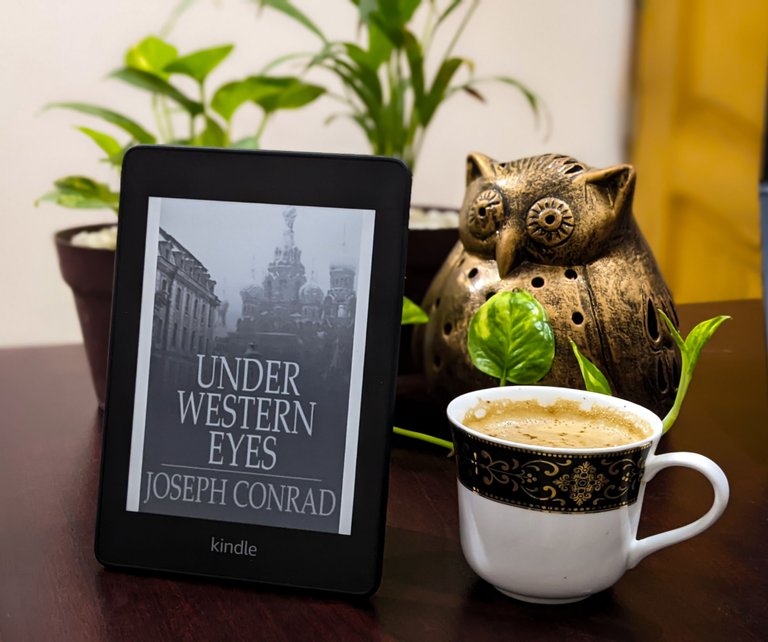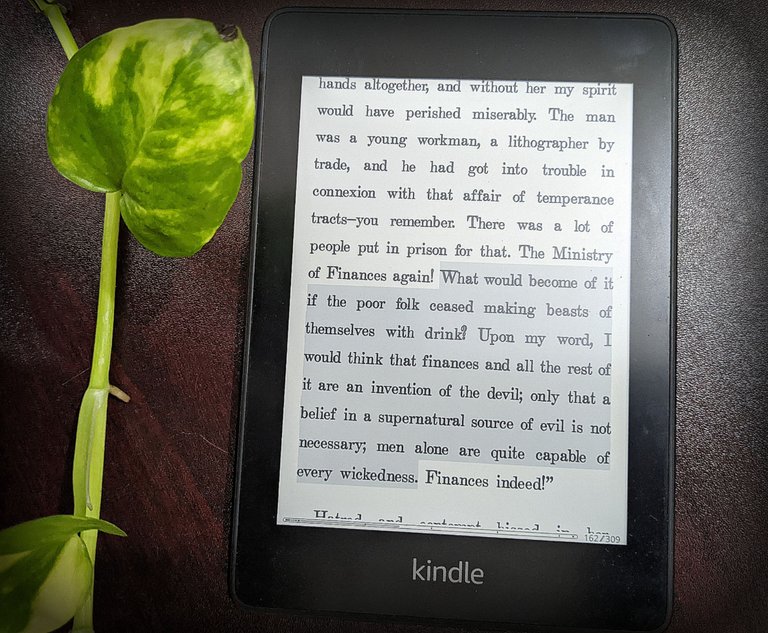Let’s break the ice. Yes, Joseph Conrad is one of the greatest novelists of all time, Yes, Under Western Eyes is one of his most acclaimed books, it is a compelling thriller of a sort, that is also true—and all of these are very good reasons to take the book up and read it. One can simply pick this and have a good time reading it. However, one can also delve deeper into the themes of ideological clash and cognitive conflict within oneself and take the book as a fine source of study material. Conrad also encouraged such reading I believe, as he said sometime around 1911 —"...in this book I am concerned with nothing but ideas, to the exclusion of everything else".

Set in czarist Russia, a politician is bombed and killed by the revolutionaries. The revolutionary killer is a university student, Haldin. After the act of carrying out the assassination, he seeks shelter in the home of a fellow student, named Razumov—who is one of the central characters the story revolves around. Razumov turns Haldin to the state police. Haldin sent his sister and mother to Switzerland before the assassination, we see their struggles in the absence of their loved one, and how it connects to their political ideologies. The exiled revolutionaries are there in Switzerland, plotting how to overthrow the czarist government in Russia. Razumov also comes to Switzerland. A complex maze of relationships starts to form, fueled by conflicting views on freedom, individuality, national unity, and political ideas among different Russian fronts. And the whole story is observed and narrated by an English teacher. His voice and perspectives are the titular “Western eyes”, and perhaps the author’s as well.
I feel like the ideas in this book can be broadly categorized into two areas. Firstly, the characterization of Razumov—a determined, ambitious student of no family background, who is trying to achieve a respectable station through merit alone, and whose life gets turned upside down by the imposing revolutionary bomber, Haldin. Razumov betrays him from the sense of pure self-preservation, the willingness to turn things as they were, for a future he was working hard—while the other half of his mind gets torn by guilt, shame, and a peculiar solidarity with Haldin.
Secondly, the conflict between Western liberalism, individuality, democracy, and Russian autocracy, the struggle to overthrow it with revolution, the case for revolutionary attempts, and ideas of uniformity, a unified Russian character, where individuality is not prioritized, where one person can easily be sacrificed for the greater good, where the bombing of a despotic leader can be a beacon of hope for the people! Yes, this would certainly be alien to the Western perspective, progressive in their ideas—unable to feel the Russian unified spirit, the need to emerge victorious from the clash with despots and systematic suppression of the national identity to feel whole again, to feel alive, to breathe free! This is my take at least, there has been much debate over what Conrad meant by Western eyes.
There’s another theme that unites these two areas, how revolutions or such big ideas mingle with innocent people and take their lives apart without caring much about the damage it’s causing. We see how Razumov's life, Haldin, and his family’s lives become unrecognizable by the actions they were not responsible for. Conrad is furious about this carelessness, and the novel is a clear protestation. He explores the nature of force behind this carelessness, the evil that drives certain individuals to maintain corporations, and governments, at the expense of the common people.

It’s been more than a century since Conrad wrote the book, it can be seen from the pre and post-October revolution, and I believe, exploring the book, many of the ideas regarding introspection, and individual identity are still quite relatable and will be as long as human dignity and civilization exist. It was a great read, to say the least.

All the photos are mine.

